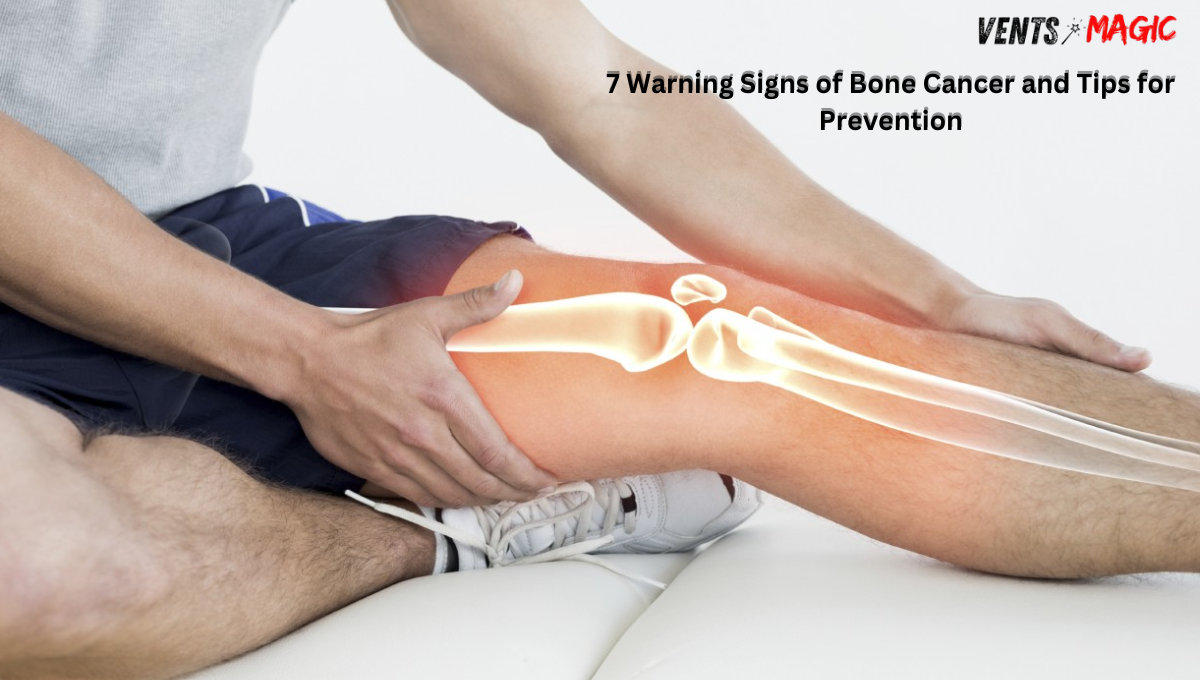Vitamin B12 Deficiency: Complete Guide
What is Vitamin B12?
Vitamin B12 is a vital component that supports the health of your blood and nerve cells. Plus, it aids in the synthesis of DNA, the genetic material found in every cell in your body. Vitamin B12 is not produced by your body on its own. To obtain vitamin B12, you must eat and drink foods and beverages that contain it.
Meat, dairy, and eggs are among the animal items that contain vitamin B12. It is also present in foods that have been fortified, or foods that have had specific vitamins and nutrients added to them, like bread, nutritional yeast, and some cereals.
The recommended daily intake of vitamin B12 for adults is 2.4 micrograms (mcg), with higher requirements for those who are pregnant or nursing. Depending on their age, infants and kids require different amounts of vitamin B12.
What is Vitamin B12 Deficiency?
A deficit of vitamin B12 occurs when the body is unable to absorb enough of the vitamin from food or does not get enough of it to function normally. An essential vitamin, B12, aids in the production of red blood cells and DNA, the genetic material that makes up every cell in your body.
Vitamin B12 deficiency occurs when the body lacks sufficient vitamin B12, essential for red blood cell production and neurological function. This deficiency can lead to fatigue, weakness, and neurological issues, significantly affecting overall health. It commonly arises from inadequate dietary intake, absorption problems, or certain medical conditions. Early detection is crucial for effective treatment.
Causes of Vitamin B12 Deficiency
Vitamin B12 deficiency can result from several factors, impacting various populations differently. Here are some of the primary causes:
Dietary Deficiencies:
One of the most common causes of Vitamin B12 deficiency is inadequate dietary intake. This is especially prevalent among individuals following vegetarian or vegan diets, as B12 is primarily found in animal products like meat, fish, eggs, and dairy. Even those who consume animal products may not get enough B12 if their diet is limited or lacks variety.
Malabsorption Issues:
Certain medical conditions can impair the body’s ability to absorb Vitamin B12. For example:
-
- Pernicious Anemia: This autoimmune condition affects the stomach’s ability to produce intrinsic factor, a protein necessary for B12 absorption.
- Gastrointestinal Disorders: Conditions like Crohn’s disease, celiac disease, or bacterial overgrowth can damage the gut lining or interfere with nutrient absorption.
Age:
As we age, our bodies produce less stomach acid, which is necessary for releasing Vitamin B12 from food. Older adults are often at a higher risk for deficiency due to this decreased absorption capability.
Medications:
Some medications can interfere with Vitamin B12 absorption. For instance, proton pump inhibitors (PPIs), used for acid reflux, can reduce stomach acid levels, impacting B12 absorption. Metformin, a common diabetes medication, may also affect B12 levels over time.

What are the symptoms of vitamin B12 deficiency?
Symptoms of a vitamin B12 shortage can be neurological, psychological, and physical. A vitamin B12 shortage can cause symptoms that appear gradually and progressively worsen over time. Even when they have low blood levels of vitamin B12, some persons may not exhibit any symptoms. Individuals who are deficient in vitamin B12 may experience neurological impairment and/or symptoms without having anemia (low red blood cell count.
General physical symptoms of vitamin B12 deficiency can include:
- Feeling very tired or weak.
- Experiencing nausea, vomiting or diarrhea.
- Not feeling as hungry as usual.
- Weight loss.
- Having a sore mouth or tongue.
- Having yellowish skin.
Neurological symptoms of vitamin B12 deficiency can include:
- Numbness or tingling in your hands and feet.
- Vision problems.
- Having a hard time remembering things or getting confused easily.
- Having a difficult time walking or speaking like you usually do.
Psychological symptoms of vitamin B12 deficiency can include:
- Feeling depressed.
- Feeling irritable.
- Experiencing a change in the way you feel and behave.
Solutions to Vitamin B12 Deficiency
Once we know the signs and have a diagnosis, the next step is to address the deficiency. Here are some practical solutions:
1. Dietary Adjustments
The first step is to incorporate more Vitamin B12-rich foods into our diets. Here are some excellent sources:
- Animal Products: Meat (beef, chicken), fish (salmon, tuna), dairy (milk, cheese), and eggs.
- Fortified Foods: Many plant-based milk alternatives, breakfast cereals, and nutritional yeasts are fortified with Vitamin B12.
2. Supplements
If dietary changes aren’t enough or if you have absorption issues, taking supplements may be necessary. Vitamin B12 supplements come in various forms, including tablets, sublingual (under the tongue) tablets, and injections. Always consult with your healthcare provider for recommended dosages.
3. Regular Monitoring
It’s vital to monitor your Vitamin B12 levels regularly, especially if you are at risk of deficiency. A healthcare provider can guide how often you should be tested and the best course of action.
Diagnosing Vitamin B12 Deficiency
If you suspect you might be deficient, it’s essential to seek medical advice. Here’s how the diagnosis typically unfolds:
1. Blood Tests:
The primary method for diagnosing Vitamin B12 deficiency is through blood tests. Key tests include:
- Complete Blood Count (CBC): This test checks for anemia, which can indicate a B12 deficiency. In B12 deficiency anemia, the red blood cells are often larger than normal (macrocytic anemia).
- Serum Vitamin B12 Test: This test measures the level of B12 in your blood. A low level typically indicates a deficiency.
- Methylmalonic Acid (MMA) Test: If B12 levels are borderline, an MMA test may be performed. Elevated MMA levels can indicate a B12 deficiency, as B12 is needed to metabolize methylmalonic acid.
- Homocysteine Test: Elevated homocysteine levels can also indicate a B12 deficiency, as B12 plays a role in converting homocysteine to methionine.
2. Physical Examination
3. Importance of Early Diagnosis
Early diagnosis of Vitamin B12 deficiency is crucial for preventing serious health complications. When left untreated, this deficiency can lead to irreversible nerve damage, cognitive decline, and other severe conditions. Recognizing the symptoms early, such as fatigue, memory issues, and neurological changes, allows for prompt medical intervention.
A simple blood test can identify low B12 levels, enabling timely dietary adjustments or supplementation. By addressing the deficiency early on, we can protect our overall health and well-being. Staying proactive and aware of our nutritional needs empowers us to make informed decisions that can significantly improve our quality of life.
Preventing Vitamin B12 Deficiency
Prevention is always better than cure. Here are some tips to help us avoid Vitamin B12 deficiency:
1. Healthy Eating Habits
Incorporate B12-rich foods into your daily meals. For those on a vegetarian or vegan diet, consider fortified foods and discuss supplementation with a healthcare professional.
2. Lifestyle Changes
If you consume alcohol regularly, consider reducing your intake. Discuss any medications you’re taking with your doctor to ensure they’re not interfering with Vitamin B12 absorption.
3. Awareness of At-Risk Groups
Certain groups are at a higher risk of Vitamin B12 deficiency. This includes vegetarians, vegans, the elderly, and people with gastrointestinal disorders. If you fall into any of these categories, take extra precautions to monitor your levels.
Conclusion: Vitamin B12 Deficiency: Signs, Symptoms, and Solutions
Vitamin B12 plays a vital role in our health, and understanding its importance is crucial for preventing deficiency. By recognizing the signs and symptoms and taking proactive steps to maintain adequate levels, we can enhance our overall well-being. If you suspect you might be deficient, don’t hesitate to consult a healthcare professional. Together, we can navigate our health journey and ensure we are getting the nutrients we need to thrive.
FAQs: Vitamin B12 Deficiency: Signs, Symptoms, and Solutions
Below are some of the FAQs about “Vitamin B12 Deficiency: Signs, Symptoms, and Solutions”. However, if you have any other questions in your mind, then don’t forget to use our contact us page.
1. Can I get enough Vitamin B12 from a plant-based diet?
Getting enough Vitamin B12 from a plant-based diet can be challenging, as this essential nutrient is primarily found in animal products. While some plant-based foods, like fortified cereals and nutritional yeast, can provide Vitamin B12, they may not be sufficient for everyone. It’s crucial for those following a vegan or vegetarian diet to monitor their B12 levels and consider supplements if necessary.
2. How can I tell if I’m getting enough Vitamin B12?
To determine if you’re getting enough Vitamin B12, monitor for symptoms like fatigue, weakness, and cognitive issues. A blood test can accurately measure your B12 levels. If you’re following a vegetarian or vegan diet, consider incorporating fortified foods or supplements, and consult a healthcare provider for personalized advice.
3. Is Vitamin B12 deficiency serious?
Yes, Vitamin B12 deficiency can be serious. It can lead to severe health issues, including anemia, fatigue, neurological problems, and cognitive decline. If left untreated, it may result in irreversible nerve damage and significant impairment in quality of life. Early diagnosis and appropriate treatment are crucial to prevent long-term complications.
4. How long does it take to treat a Vitamin B12 deficiency?
Treating a Vitamin B12 deficiency varies depending on its severity and the treatment method used. Generally, symptoms may improve within days to weeks after starting supplements or injections. However, complete recovery can take several months, especially for neurological symptoms. Regular follow-ups with a healthcare provider are essential for effective management.




Pingback: Gutsy Boldness nyt - Vents magic